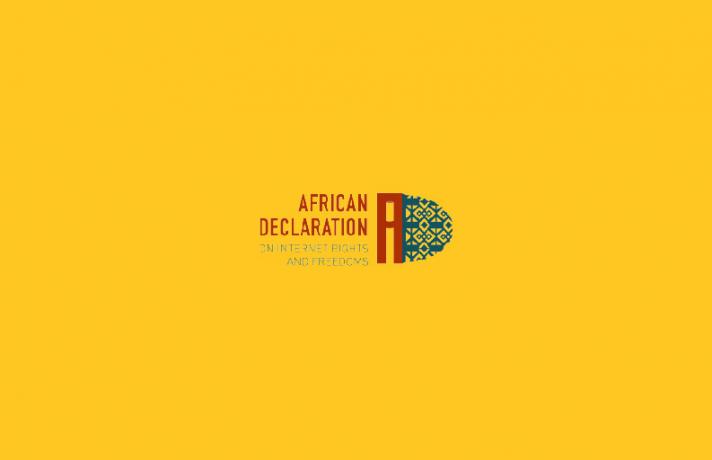Launch Statement: AfDec COVID-19 Position Paper
Launch Statement: AfDec COVID-19 Position Paper

The African Declaration on Internet Rights and Freedoms (AfDec) Coalition is pleased to announce the launch of its Position paper in response to the COVID-19 pandemic, which consolidates Coalition members’ assessment of, and positions on, the promotion, protection and exercise of human rights online in the context of COVID-19. The Coalition takes the firm view that internet rights and freedoms are more important now than ever before. As we see an increasing shift from face-to-face interactions moving to online platforms, the importance of the internet cannot be denied. It is therefore imperative for states and other stakeholders to recognise the crucial role that the internet plays in realising the full array of fundamental rights, and to take appropriate measures to give effect to this.
About the position paper
As the Coalition, our work is guided by the 13 principles set out in the African Declaration on Internet Rights and Freedoms. Specifically, this position paper focuses on key principles in the Declaration that have been particularly impacted by the pandemic, namely the principles relating to access and affordability, freedom of expression, privacy and data protection, gender equality and marginalised communities, and the right to information.
On access and affordability, the Coalition emphasises that the internet should be available and affordable to all persons in Africa, without discrimination on any grounds. At present, digital inequality deprives billions of people of the critical connections necessary in a time of physical distancing occasioned by COVID-19. Strategies need to be developed to increase internet access for digitally excluded communities or those with limited connectivity, for example, through the promotion of community networks. It is further of deep concern to the Coalition that the cost to communicate remains exorbitant in Africa, and beyond the reach of many persons. States and service providers should be encouraged to adopt measures to ensure that all persons can access information online, including through the provision of discounted data or special affordable packages for low-income groups, and the use of universal service and access funds to bridge the digital divide. The Coalition also highlights the need for a stronger campaign against consumer-facing taxes on data and internet services, which have had long-standing effects of increasing connectivity costs for consumers.
On the regulation of content online, the Coalition notes that while legitimate concerns about disinformation during the pandemic arise, any restrictions on freedom of expression must comply strictly with international human rights law. Rather than criminalising speech, the Coalition considers other measures to be more appropriate, such as frequent public service announcements, increased public interest reporting and support for fact-checking platforms. The Coalition also points to the responsibility of internet search and social media platforms to assess the impact of their content policies on the right to freedom of expression.
On privacy, surveillance and data protection, the Coalition notes the apparent increasing trend of technology-based disease surveillance and the over-disclosure of personal information about persons infected with COVID-19. Any use of technology contemplated in response to COVID-19 must abide by the strictest protections for personal data and the right to privacy, and must be used in a transparent manner with appropriate safeguards in place to protect the privacy rights of affected persons.
On gender equality and marginalised communities, the Coalition notes that lockdown restrictions have further marginalised millions of women and girls, particularly those in rural communities who have lesser access to the internet, and resultantly lesser access to critical information. The Coalition therefore calls on relevant stakeholders to address the gender digital divide, with factors such as level of employment, education, poverty, literacy and geographical location resulting in African women having lower levels of access than men. The Coalition is also concerned by the continued exclusion of persons with disabilities in Africa, even during such a crucial moment, and calls on states, mainstream media and online content producers to work with disability organisations to ensure more inclusivity in communications.
On the right to information, the Coalition stresses the importance of timely and proactive disclosures of information in the public interest regarding COVID-19. This serves to ensure that the public can appropriately respond to developments and participate in decisions being made. The development of zero-rated content portals should also be encouraged. Furthermore, it is essential that the role of the media be respected and promoted to ensure that they can perform their essential function in informing and educating the public, as well as in ensuring accountability.
Call to action
While significant strides have been made, we cannot ignore that the full protection of fundamental rights and freedoms on the internet remains a key challenge in need of urgent resolution in the digital age. This position paper seeks to assist states, regulators and private sector actors to understand their duties and responsibilities to the public that they serve and who are affected by their actions. It is also intended to support civil society organisations and activists to advocate for laws, policies and practices that fully realise the internet rights and freedoms that we are all entitled to enjoy online.
The position paper can be downloaded in English, French and Portuguese.
